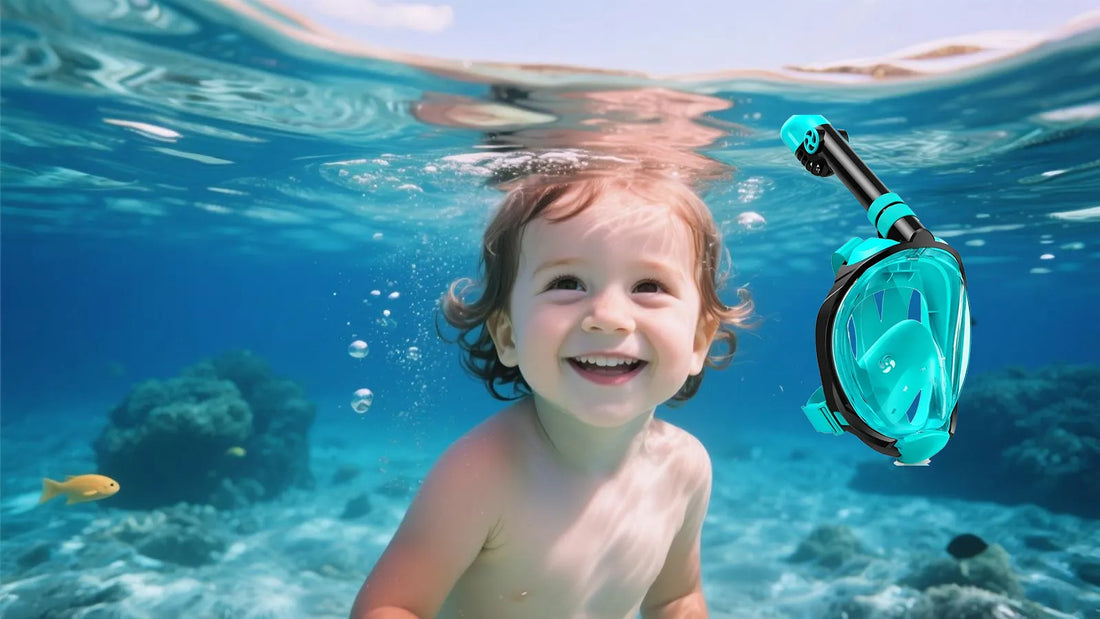Snorkeling is one of the most accessible and thrilling ways to explore the underwater world. Whether you're dreaming of vibrant coral reefs, colorful fish, or serene ocean landscapes, snorkeling offers a unique perspective. But a common question many beginners ask is: Do you need to know swimming for snorkeling? Let’s dive into the details to help you understand what’s required and how you can enjoy this activity safely.
Understanding Snorkeling Basics
Snorkeling involves swimming on the surface of the water while using a snorkel, mask, and fins to observe underwater life. Unlike scuba diving, snorkeling doesn’t require extensive training or heavy equipment. However, being comfortable in the water is crucial for a safe and enjoyable experience.
Do You Need to Know Swimming for Snorkeling?
The short answer is: Yes, basic swimming skills are highly recommended for snorkeling. While it’s possible to snorkel without being a strong swimmer, knowing how to swim can significantly enhance your safety and confidence in the water. Here’s why:
- Safety First: Being able to swim ensures you can handle unexpected situations, such as strong currents or fatigue.
- Comfort in the Water: Swimming skills help you stay relaxed, which is essential for breathing properly through the snorkel.
- Maneuverability: Swimming allows you to move freely and explore different areas without relying solely on flotation devices.
Can Non-Swimmers Snorkel?
If you don’t know how to swim, you can still enjoy snorkeling with certain precautions. Many tour operators offer guided snorkeling experiences with life jackets or flotation devices. These tools help keep you afloat and reduce the risk of accidents. However, it’s important to communicate your skill level to the guide and follow their instructions carefully.
Essential Tips for Beginners
Whether you’re a swimmer or not, these tips can help you make the most of your snorkeling adventure:
- Practice in Shallow Water: Start in a calm, shallow area to get used to the equipment and breathing techniques.
- Use Proper Gear: Ensure your mask fits snugly, your snorkel is comfortable, and your fins are the right size.
- Stay Calm and Breathe Slowly: Panicking can lead to hyperventilation. Focus on slow, steady breaths through the snorkel.
- Buddy Up: Always snorkel with a partner, especially if you’re a beginner or non-swimmer.
- Respect Marine Life: Avoid touching corals or chasing fish to protect the ecosystem.
Building Confidence in the Water
If you’re not a strong swimmer but want to improve your skills for snorkeling, consider taking swimming lessons. Practicing in a pool or calm water can help you build confidence and develop essential techniques. Additionally, learning how to float and tread water can make a big difference in your snorkeling experience.
Choosing the Right Location
Selecting a beginner-friendly snorkeling spot is key to a positive experience. Look for locations with calm waters, minimal currents, and clear visibility. Many popular snorkeling destinations offer shallow reefs or lagoons that are perfect for first-timers.
Snorkeling Safety Tips
Safety should always be your top priority when snorkeling. Here are some additional tips to keep in mind:
- Check Weather Conditions: Avoid snorkeling in rough seas or during storms.
- Stay Hydrated: Dehydration can affect your energy levels and focus.
- Know Your Limits: Don’t push yourself too hard. Take breaks as needed.
- Be Aware of Your Surroundings: Watch out for boats, strong currents, and marine hazards.
Snorkeling Gear Essentials
Having the right gear can make or break your snorkeling experience. Here’s a quick overview of the essentials:
- Mask: A well-fitting mask ensures a clear view and prevents water from leaking in.
- Snorkel: Choose a snorkel with a comfortable mouthpiece and a purge valve for easy clearing.
- Fins: Fins help you move efficiently through the water with minimal effort.
- Flotation Device: A life jacket or snorkeling vest can provide added safety and buoyancy.
Common Mistakes to Avoid
Even experienced snorkelers can make mistakes. Here are some common pitfalls to watch out for:
- Improper Breathing: Breathing too quickly or deeply can lead to discomfort or hyperventilation.
- Overexertion: Trying to swim too far or too fast can exhaust you quickly.
- Ignoring Safety Guidelines: Always follow the instructions of your guide or tour operator.
- Neglecting Gear Maintenance: Rinse your gear with fresh water after each use to prevent damage.
Snorkeling for Non-Swimmers: A Step-by-Step Guide
If you’re a non-swimmer but eager to try snorkeling, follow these steps to ensure a safe and enjoyable experience:
- Choose a Guided Tour: Opt for a tour that caters to beginners and provides flotation devices.
- Practice in a Pool: Familiarize yourself with the equipment in a controlled environment.
- Use a Life Jacket: Wear a life jacket to stay afloat and reduce anxiety.
- Stay Close to Shore: Snorkel in shallow areas where you can stand if needed.
- Communicate with Your Guide: Let your guide know about your skill level and any concerns.
The Joy of Snorkeling
Snorkeling is more than just an activity—it’s a gateway to discovering the beauty of the ocean. Whether you’re a seasoned swimmer or a first-timer, the underwater world has something magical to offer. With the right preparation and mindset, you can create unforgettable memories and develop a deeper appreciation for marine life.
So, do you need to know swimming for snorkeling? While it’s not an absolute requirement, having basic swimming skills can enhance your safety and enjoyment. For non-swimmers, guided tours and flotation devices provide a way to experience this incredible activity. No matter your skill level, snorkeling is an adventure worth trying. Dive in, explore, and let the wonders of the ocean captivate you!

